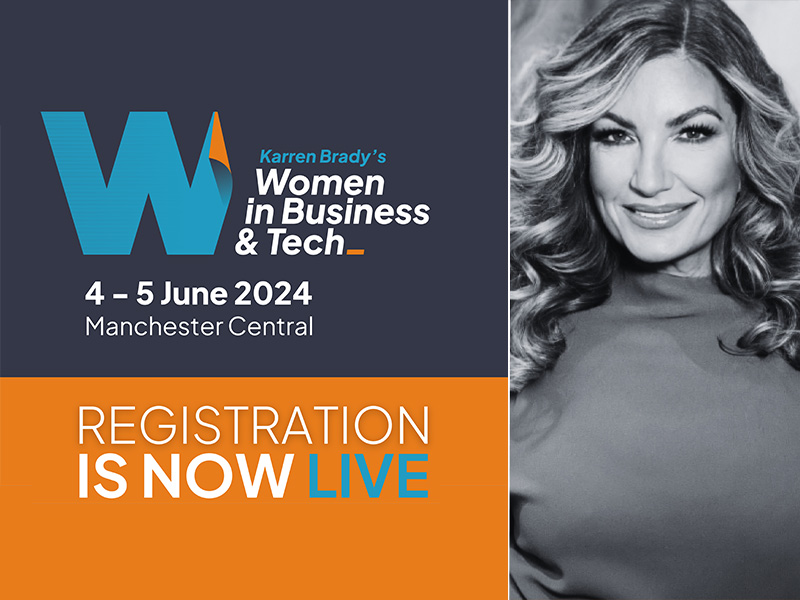
If you were asked to draw an effective leader would you draw a man or a woman?
According to a recent New York Times article, numerous studies have shown that most people (women and men) will draw a man. This has led organisational psychologists to conclude that getting noticed as a leader in the workplace continues to be more difficult for women than for men.
To be clear, effective female leaders possess exactly the same traits as their male counterparts namely vision, empathy, drive and resilience. Despite this, there are still not enough women in senior positions: take the FTSE 100 which features just seven women CEOs.
My progressive Danish upbringing and my experience of carving out a leadership career in the male dominated design and tech sector, make me committed to challenging the status quo.
As a result, creating an inclusive, gender-equal workplace is very high up my agenda. This includes introducing transformational people initiatives such as peer-to-peer coaching to help people build on their personal strengths and overcome their weaknesses. It also involves encouraging women in particular to stretch beyond their comfort zone and feel more confident as a result.
Based on my personal experiences, here are my five secrets for women who want to be successful and impactful leaders:
#1 Dare to Speak your Truth
Speaking your truth as a woman isn’t always easy: just look at the regular trolling of female public figures on Twitter. In everyday life, unconscious biases, such as “women are more emotional” can make it hard to really speak up for ourselves. Yet as Oprah Winfrey said in her Golden Globe acceptance speech: “speaking the truth is the most powerful tool we all have.” This is why, to be an inspiring and effective female leader, you need to stand your ground, be authentic and dare to speak up, even when it’s uncomfortable.
#2 Be (Self) Compassionate
I am passionate about my team and my clients and like a lot of leaders, I clock up long hours at work which demands high levels of resilience. Over the years, I have learnt how important it is to be self-compassionate and monitor my energy levels, so I can come to work every day as the best version of myself. I call this approach leading from within.
My interest in leading from within, and in empowering my team to do the same, inspired me to join the Google Search Inside Yourself leadership programme last year and I am now introducing it to my peers at a global level. Based on mindfulness techniques and the latest neuroscience findings, Search Inside Yourself enables businesses and individuals to manage stress and be self-compassionate by providing a versatile toolbox that allows people to create resilience practices tailored to their individual needs.
When we are compassionate to ourselves and each other, it really pays off in terms of increased focus, collaboration and productivity.
#3 Handle Conflict with Style
For me, creating a healthy company culture isn’t about beanbags and foosball tables, instead it’s about handling conflict successfully. You can’t lead people without encountering conflict, yet how you handle disagreements in a work context is key to the outcome and to our wellbeing as humans. I’m a firm believer in the power of emotional intelligence – the ability to monitor our own and others’ feelings – to diffuse tense situations and create a happier, healthier working atmosphere.
In fast-paced environments, where feelings can run high, emotional IQ helps us take a step back, pause, reflect and in doing so change the outcome for the better. It’s about being pragmatic and professional when the situation requires you to be.
Communications coach Esteve Pannetier works with companies, including mine, to help teams identify and adapt their communication styles to the contexts they operate in. He takes an empathetic approach to conflict resolution and talks about the three communications styles you need to master to become a “black belt” in relationships. Esteve reinforces the need for leaders to listen to hear, rather than respond. I’ve personally found this very useful in getting to the root cause of any problem – whether team or client related.
#4 Be Tough When You Need to Be
The six years I spent as a secondary school teacher and counsellor taught me a lot, including one valuable lesson in particular: If I wanted my students to get the grades they were capable of, I needed to strike the right balance between being a leader and a friend.
Heading up a team of dedicated professionals, the same rule applies. Whether it’s giving constructive feedback, or making sure we meet our business targets, there are times when I need to be tough and set a clear direction.
As women we need to get comfortable with initiating uncomfortable conversations. For me this involves reminding myself that the buck stops with me. If I fail to have hard conversations or confront difficult issues, just because it makes me uncomfortable, I compromise our goals and fail to help the team to improve and progress.
#5 Give Back
During my career I have benefited enormously from women and men who saw my potential and took the time to encourage me to stretch myself. This is why I’m committed to spending time coaching and mentoring people, and women in tech in particular, who are at an early stage in their careers. As female leaders, one of our biggest responsibilities is to nurture the next generation of talent – male and female – whether through one-to-one coaching or through active participation in networking groups such as Ada’s List. Coaching someone else is a great way to consolidate your own knowledge and skills. I’ve personally learnt a lot and get a ton of energy back from the people I mentor.
Ultimately, there is no greater privilege than empowering the next generation of female leaders by helping them discover and unleash their full potential.
 About the author
About the author
Mette Andersen is managing director of digital innovation consultancy Futurice in London. Headquartered in Helsinki, Futurice is a fast-growing international company of technologists, designers, data scientists and advisors who work with multinationals to help them become future capable.
Clients includes Ford, Tesco and Plan International, a global NGO focused on girls’ rights.








